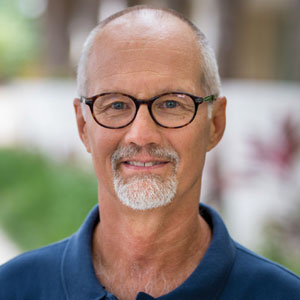WINSTON-SALEM, N.C. – August 29, 2024 – The Wake Forest Institute for Regenerative Medicine (WFIRM) proudly announces the appointment of Tim Bertram, PhD, as its new Chief Ecosystem Officer. He will serve as the Chief Executive Officer (CEO) of the U.S. National Science Foundation (NSF) multi-million-dollar long-term investment in commercializing advanced regenerative medical technologies from leading North Carolina academic institutions. With an illustrious career marked by innovation and leadership, Bertram brings decades of transformative experience from his tenure at ProKidney, a leading chronic kidney disease therapy company he founded focused on preserving kidney function and controlling kidney failure.

As the founder and former CEO of ProKidney, Bertram orchestrated the company’s growth trajectory, establishing it as a prominent player in the biomedical research field. His visionary leadership and strategic acumen not only propelled ProKidney to success in establishing a global registrational program of regenerative technologies but also positioned it at the forefront of cutting-edge medical advancements. ProKidney, situated in North Carolina’s core brought exceptional workforce development opportunities to the area and continued the state’s legacy in research growth, advanced technology development, manufacturing, and clinical trials.
“We are thrilled to welcome Tim Bertram to WFIRM and our NSF Innovation Engine,” said Dr. Anthony Atala, Chief Innovation Officer for the NSF Cooperative Agreement and Director of the Wake Forest Institute for Regenerative Medicine. “His exceptional track record in driving innovation and fostering strategic partnerships makes him the ideal leader to steer the NSF Cooperative Agreement through its next phase of growth.”
Prior to founding ProKidney, Bertram held pivotal roles in various capacities, with a deep-rooted commitment to advancing science and technology, with companies such as inRegen, Tengion, Inc., and Pfizer helping to bring 8 new medicines into the marketplace. His appointment solidifies North Carolina’s core academic research institution’s commitment to harnessing innovation for societal impact and addressing global challenges through technology-driven solutions.
“I am honored to join WFIRM and the NSF Innovation Engine at such an exciting time,” said Bertram. “Together, I know we can accelerate the development and deployment of transformative technologies for North Carolina and eventually the global market bringing economic growth to the region with this rapidly expanding industry”
Tim Bertram graduated from Iowa State University with a degree in Biology before gaining his Doctor of Veterinary Medicine and PhD in Cellular Pathology from the same institution. He completed Post-doctoral Research in cytokine biology with the NIH and is board certified with the American College Veterinary Pathology (DACVP). He is the current holder of 71 issued patients with 74 pending applications, and in 2023, he was honored as a runner up for the Ernst & Young Entrepreneur of the Year award.
WFIRM is the recipient of the 2024 inaugural NSF Engines Program award. The NSF-Piedmont Triad Regenerative Medicine Engine is an initiative to build a regional innovation ecosystem to accelerate the translation of regenerative medicine use-inspired research to commercialization, thus stimulating economic growth, workforce development, and job creation. CoCore team partners include North Carolina Agricultural and Technical State University, Winston Salem State University, Forsyth Technical Community College, Axiom Space, and the RegenMed Development Organization (ReMDO), and is supported by multiple businesses, governmental entities, and not-for-profit agencies.
About Wake Forest Institute for Regenerative Medicine: The Wake Forest Institute for Regenerative Medicine is recognized as an international leader in translating scientific discovery into clinical therapies, with many world firsts, including the development and implantation of the first engineered organ in a patient. Over 500 people at the institute, the largest in the world, work on more than 40 different tissues and organs. A number of the basic principles of tissue engineering and regenerative medicine were first developed at the institute. WFIRM researchers have successfully engineered replacement tissues and organs in all four categories – flat structures, tubular tissues, hollow organs and solid organs – and 17 different applications of cell/tissue therapy technologies, such as skin, urethras, cartilage, bladders, muscle, kidney, and vaginal organs, have been successfully used in human patients. The institute, which is part of Wake Forest University School of Medicine, is located in the Innovation Quarter in downtown Winston-Salem, NC, and is driven by the urgent needs of patients. The institute is making a global difference in regenerative medicine through collaborations with over 500 entities and institutions worldwide, through its government, academic and industry partnerships, its start-up entities, and through major initiatives in breakthrough technologies, such as tissue engineering, cell therapies, diagnostics, drug discovery, bio
